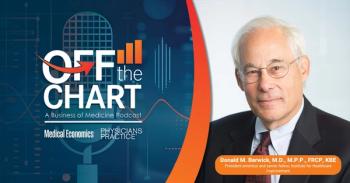
Hope for Healthcare … Maybe
There are plenty of reasons to be cynical about health reform, but maybe it’s time for a little optimism.
There are plenty of reasons to be cynical about health reform. Take, for example, the shallow, us-first behavior of the leading healthcare associations.
For example, the major hospital associations made a big deal out of their “agreement” to accept payment cuts from Medicare and Medicaid to ensure the future of American healthcare. Of course, the hospitals don’t have to agree to Medicare cuts for cuts to be forced upon them, so AHA’s deal is hollow. Besides, the hospitals will get, in return, additional revenue from newly insured patients. It is hardly a noble act of selflessness.
Then came news that the hospitals only “agreed” to pay cuts on the condition that the government limit physician-owned hospitals and surgical centers. So much for looking out for American patients. Physician-owned hospitals consistently show better outcomes at lower costs than general hospitals. All that self-congratulation brought down to the usual money-grubbing machinations. (Of course, traditional hospitals have many arguably legitimate gripes about physician-owned hospitals, such as the charge that they cherry-pick patients. But this move was so obviously based on a desire to blast the competition it still deserves censure.)
Of course, by this point, many state hospital associations have spoken out against the deal, largely for their own self-interested reasons.
Meanwhile the AMA, still the main body representing physicians, has done no better. Its position against federal programs has nothing to do with quality care and everything to do with protecting physicians’ short-term interests.
The AMA basically traded its support for the House health reform bill in exchange for a promise to get rid of the “sustainable growth rate” formula that is the basis of the annual Medicare Cuts Kabuki dance between doctors and Congress.
The AMA is demanding its little slice of the pie and is willing to go along with just about anything in return. Yes, it would be nice to see the end of the SGR, but is that all it takes to buy off the leading membership association for America’s physicians? What the AMA doesn’t seem to understand is that it is gambling with its own credibility and revealing just how far removed its leadership has become from its rank-and-file members.
I realize it’s a bit naïve of me to complain. This is what lobbying groups do. They help out the stakeholders they represent.
But I feel like, given the stakes, a little idealism is in order. That’s what real leaders do. They look to the long road.
It’s time for something genuine. Even if that’s not very fashionable. Even if we can only be authentic about little things.
While many physicians I talk to have an ideological bent - they hate big government, or love it - what really matters to them day in and day out are more basic if sublime issues, like taking great care of patients and feeling good about life.
If we spend all our time talking about health reform in the abstract sense of “the role of government” or “sustainable growth rates” we lose sight of what we might hope for in terms of more practical matters like helping this one patient have a better outcome.
It wasn’t that long ago that President Obama energized the nation with a message of “hope.” It wasn’t the particular policy stances that made that message work. As many have pointed out, “hope” is a little vague. But it’s also important. People latched on to the idea that the world can be better and that each of us, every doorbell ringer or waitress who contributed $5 online, can help.
Let’s not lose sight of a similar optimism and empowerment for healthcare. Even as the conversation drags on and the politics ramp up, I think the real leaders will be working from the heart, looking for small ways to make things better in the long-term. That’s work that’s worth doing. It’s much better than spending the next few months being snide and cynical and hopeless.
Pamela Moore is director of content and strategy for Physicians Practice. Do you have examples of genuine hope that you’d like to share? Join the conversation on reform in our blog
This article originally appeared in the September 2009 issue of Physicians Practice.
Newsletter
Optimize your practice with the Physicians Practice newsletter, offering management pearls, leadership tips, and business strategies tailored for practice administrators and physicians of any specialty.








